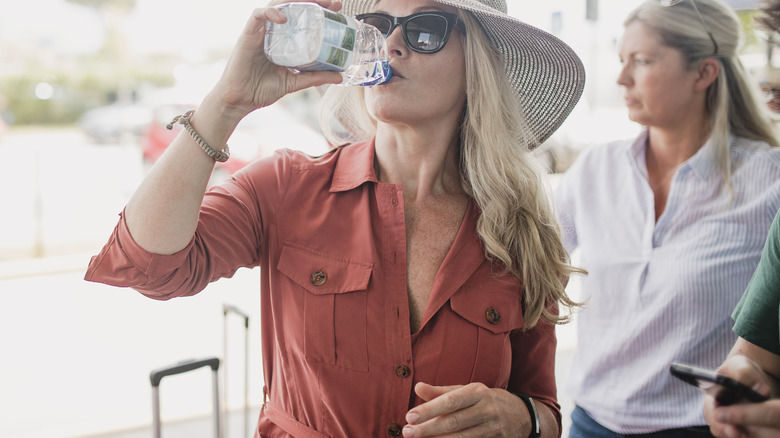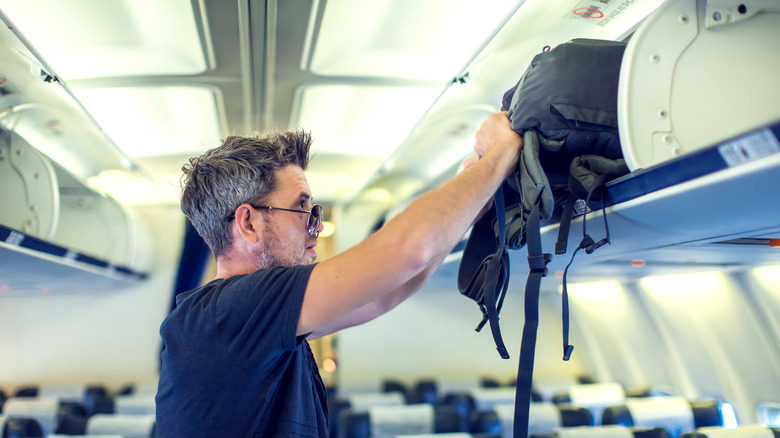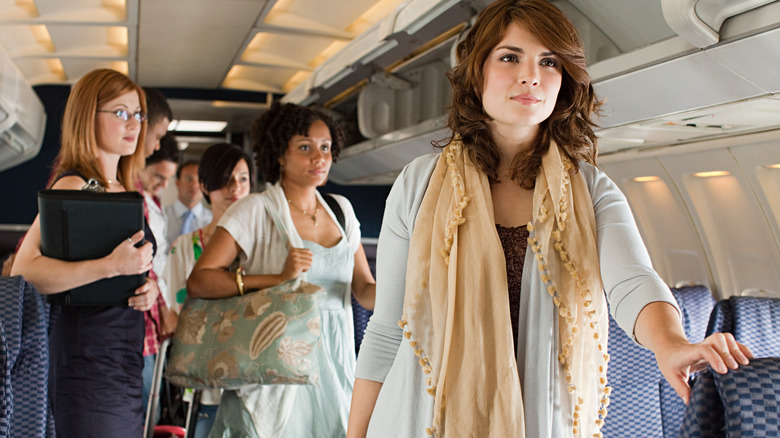Travel Guides International Travel Etiquette
Matt Berry
When flying, there’s a social contract that seems to have become a bit hazy lately. We’ve all seen clips of bad passenger behavior on social media (or maybe in person), but flight attendants are on the front lines of it. To ensure the safety and efficiency of flights, flight attendants are often tasked with dealing with unruly or inconsiderate passengers.
In an exclusive interview with Explore, flight attendant Bae Lee let us in on the mistakes passengers often make when boarding a plane. Although Lee regularly offers travel insights and flight attendant perspectives on her TikTok or Instagram page, she still surprised us with her first answer. “Handing trash to the flight attendant as soon as you walk onboard while a flight attendant is greeting you. Most times the greeting is completely ignored followed by the handing over of a Starbucks cup. It’s just rude,” Lee said. The cringe level of that boarding mistake is tough, but besides the whole “don’t be a complete monster” thing, Lee offered a few other tips that can make flights go more smoothly.
Avoid what might seem like a quick trip to the plane’s lavatory

Solstock/Getty Images
Drinking water before flying is wise, as the altitude dehydrates you quickly. Also, we understand that a long layover may necessitate a few beers. Fair. However, when you mismanage your bladder and don’t use the bathroom before boarding, it can be a problem — for everyone. When someone needs to go while the plane is on the tarmac, things really do come to a halt. Airlines can’t legally taxi with someone in the bathroom, and flight attendants can’t do their safety-critical job until everyone is in their seats.
“It causes chaos because now you can’t get back to your seat. There’s nowhere for you to stand, and it holds up the timed boarding process. Just use the bathroom at the airport. There’s typically ample time for you to do that,” Lee said. “And they’re cleaner.”
Speaking of departing on time, Lee adds that studying your boarding pass a bit before searching for your seat can really help. “Double-check it. Maybe even triple-check it before boarding,” Lee said regarding seat assignments. “It causes a delay in the boarding process when you mistakenly take the wrong seat, and now everyone has to play musical chairs to figure out who goes where.”
Ready your flight must-haves before you’re blocking an aisle

aleks333/Shutterstock
Planes feature a one- or two-way track that allows flight attendants to do their job, so open aisles make everything possible when preparing for take-off. According to Lee, there’s a right way and wrong way that passengers should unpack before sitting down. “[Passengers] might hold up boarding while standing in the aisle. They’ll take 18 minutes just to get everything out of their backpacks before they put it in the overhead bin,” Lee explains. “Small items belong under the seat, but you can get everything out of your bag while standing in front of your seat. Please do so out of the aisle rather than in the aisle.”
Again, when you’re in the aisle, a flight attendant can’t pass, and other passengers will probably just wait due to decorum. It’s not an impatience thing. It’s just a social contract you have with other passengers who need to take off on time. While standing in the aisle to unpack an overhead bag isn’t the worse example of bad behavior (like handing over trash upon boarding), a little consideration for flight attendants, other passengers, and the flight itself can make for friendlier skies.

